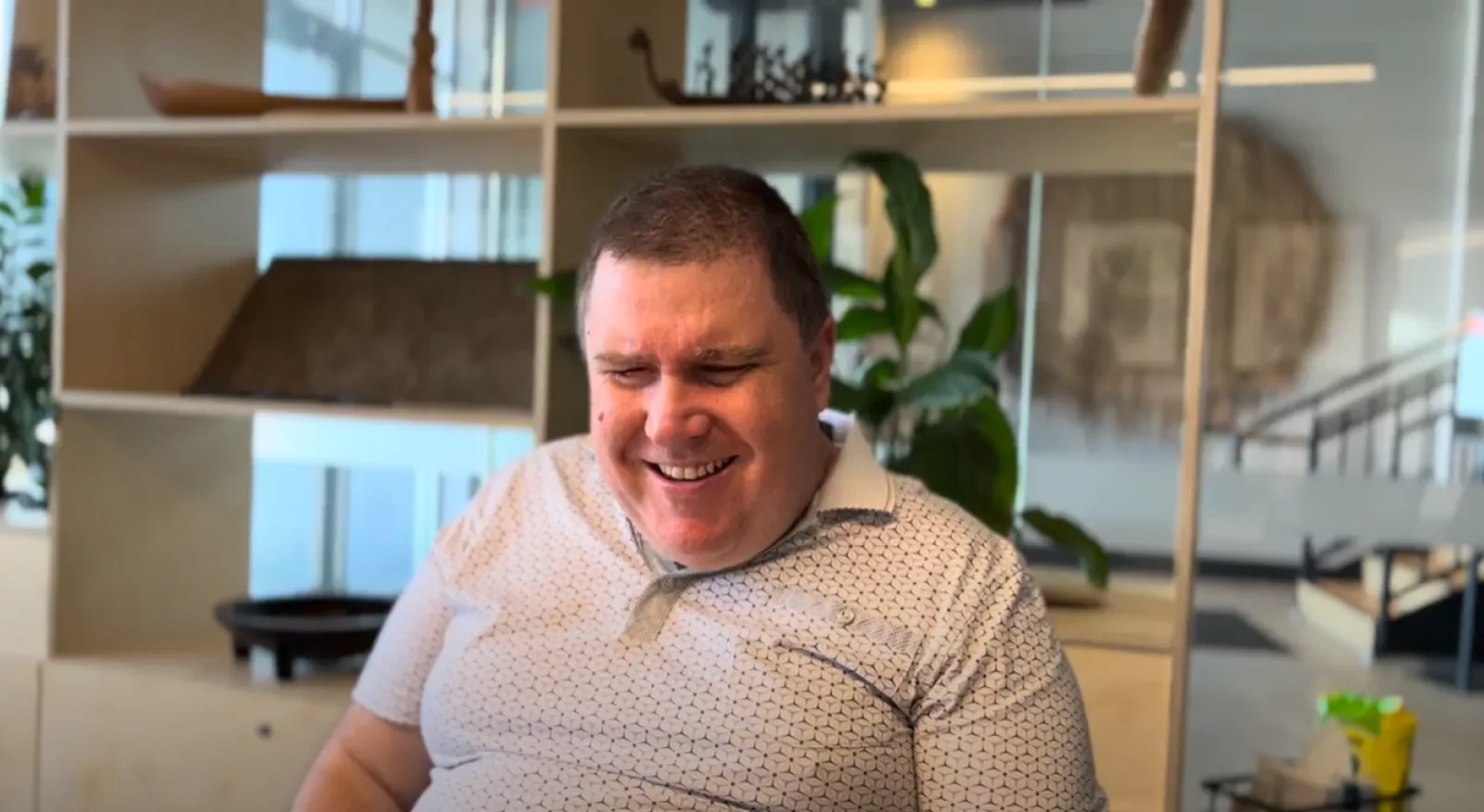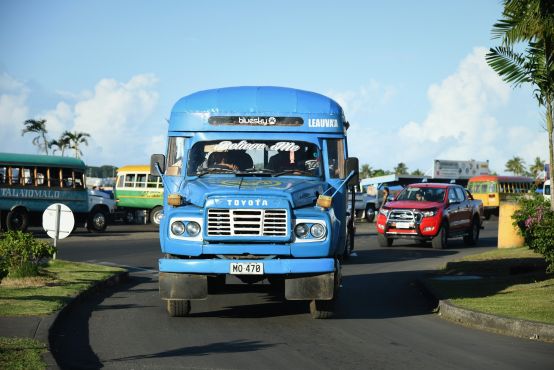Breaking down barriers to inclusion
Ben Clare shares his experience of volunteering in the Pacific as someone who is blind, and offers his advice for people with disabilities who want to volunteer.

Volunteering is such a wonderful experience that can really change your life in a positive and unpredictable way.
Before my first assignment I had no expectations. I literally got on that plane to Honiara in Solomon Islands, and I thought ‘well, if no one's there to meet me at the airport, I’ll just come back’. So, I applied for the position not really thinking I’d get it, and I got it.
I resigned from my job at a newspaper in Sydney and a lot of people said I was crazy. And in a way it was serious, because a lot of people with disabilities find it hard to get paid employment, and there I was turning down paid work for a volunteer assignment.
It was the start of my volunteer career and moved me headlong into international development, which I do now and which I really like.
Disability development throughout the Pacific
It's been a great adventure! I’ve done amazing things, I've met amazing people, and I’ve hopefully had a positive impact on the places where I went.
I’ve volunteered in several different countries around the Pacific including Fiji, Solomon Islands, Papua New Guinea, Samoa, Kiribati, Tonga and Vanuatu.
My assignments were quite wide ranging, but primarily in disability development which is a major interest of mine. I’ve worked with Organisations of People with Disabilities (OPDs) and with service providers, including schools.
With volunteering, you get to experience the community and be part of it. I think this is also possible with remote and hybrid assignments because you still interact with local people all the time.
Furthering employment opportunities for people with disabilities
One of my assignments was working with the Kiribati Special School, and my role was to introduce the students to assistive technology - primarily computers with voice output software for the blind.
We got a huge donation of computers, and I set them up at the school. We had a computer lab, and I trained the students and teachers in how to use those machines with the screen reading software.
One of the outcomes of that assignment was that our students were able to study at the Kiribati Institute of Technology and gain formal qualifications in IT. Those students then went onto further study and employment opportunities.
A genuine approach to inclusion
People with disabilities do face a lot of barriers to inclusion, but the Australian Volunteers Program by its very nature is inclusive. The support that’s available for people with disabilities is improving all the time.
A lot of people with disabilities can’t give up a year of their lives, they’d like to but it’s not possible because of what could happen when they come back. So, it’s great that the program is responsive to that too, and now offers hybrid and remote assignments.
The idea of the program’s Disability Working Group is to advise and assist with implementing disability friendly policy. This includes making sure that the assignment advertisements are accessible and inclusive right through the volunteer experience until after the volunteer returns from their assignment.
Some of the things I've done in the group include website accessibility testing, helping with interview testing and encouraging people to identify their disability so they can have the necessary support. We are very productive and it’s an honour to be part of the group.
Advice for volunteers with disabilities
Volunteering as someone with a disability is a wonderful opportunity, if you’re willing to move beyond your comfort zone.
You do have to be adaptable and flexible, which applies to anyone. You need to be relatively independent and open to the challenge of volunteering overseas.
Do your research first. Get to know the OPDs in the country you’d like to volunteer in. Ask them, ‘if I was to come over there, what would you suggest?’
Expect the unexpected. Allow yourself to be open to new ideas and new cultures. It’s all about exchange and partnerships.
Staying connected
I'm in touch with every single organisation that I've volunteered with since 2008. My phone is always buzzing with WhatsApp or Messenger messages from someone.
I’ll never forget any of the assignments that I’ve done, and I’m still in touch with lots of former colleagues I met through volunteering.
I appreciate life more now than I used to; I embrace new challenges. That's what I really value - that ‘Yes’ word. The volunteer experience allows you to explore that in yourself.
Ben is the Vice-President of SPEVI (South Pacific Educators in Vision Impairment), a producer and researcher at the ABC and has participated in the feedback review for the new DFAT disability advocacy policy. He continues to contribute to the Australian Volunteers Program as a valued member of the Disability Working Group.
The Australian Volunteers Program is committed to ensuring that all elements of the program are accessible and inclusive. Discover how the Australian Volunteers Program supports volunteers with disabilities.
What it's like to volunteer in the Pacific with a disability
'Do your research first' is Ben Clare's top piece of advice for people with disabilities who are thinking about international volunteering. In this reel, Ben shares his volunteer journey and his advice for others.
